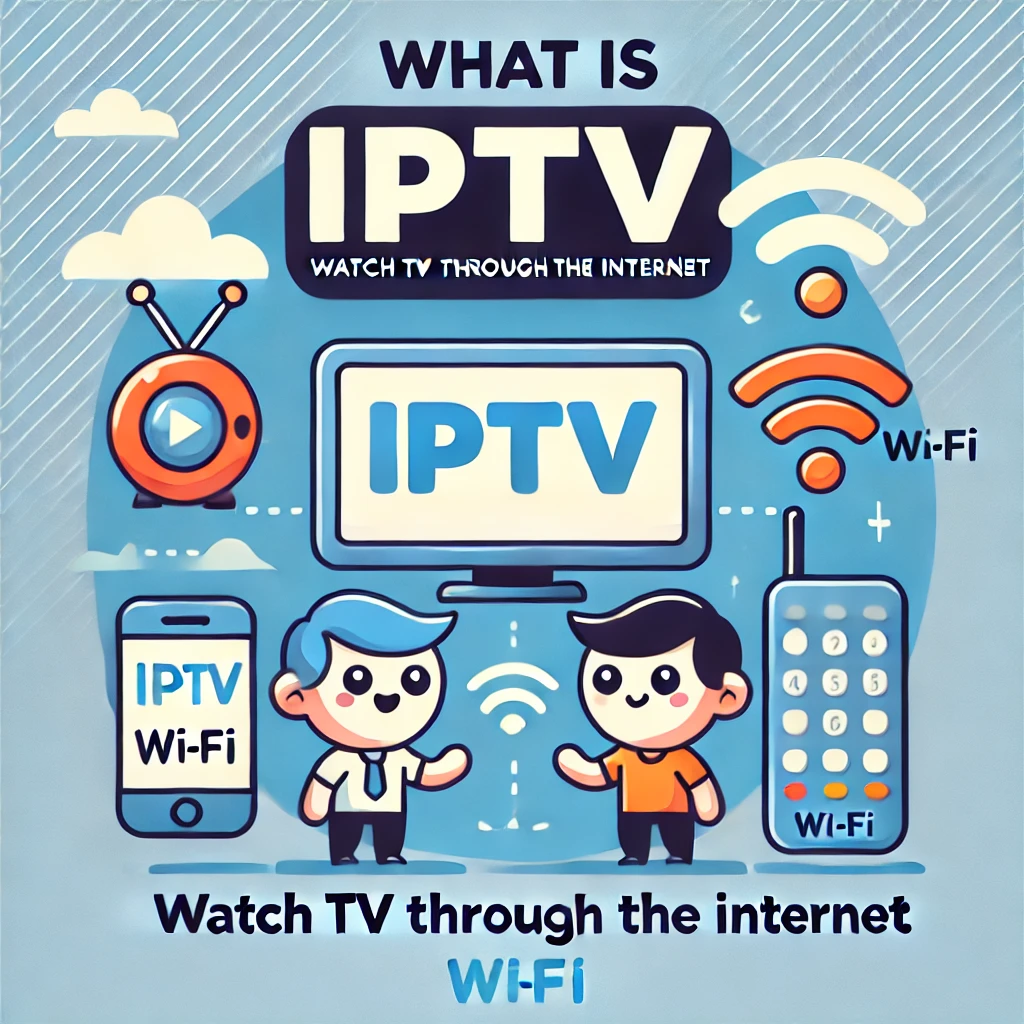
Table of Contents
What is IPTV ?
IPTV, or Internet Protocol Television, is a way of watching TV by streaming it over the internet rather than using traditional methods like cable or satellite. With IPTV, you can watch live TV channels, movies, or shows whenever you want, giving you more flexibility. IPTV is delivered through the internet using an internet protocol tv box, making it accessible on various devices like Smart TVs, phones, tablets, and computers. So, what does IPTV stand for? It means Internet Protocol Television.
For a broader understanding of IPTV, check out this external guide from TechRadar that explains how IPTV works and its impact on the TV industry.
How IPTV Works ?
IPTV works by sending TV signals over the internet, known as an IPTV system. Instead of getting signals from cable or satellite dishes, the content streams directly to your device. The internet protocol tv service can be accessed through an IP television app on your smartphone, smart TV, or set-top box. This setup allows users to enjoy IPTV on-demand and live channels.
Types of IPTV Services:
IPTV offers a variety of services that provide flexibility and choice to viewers. These services cater to different viewing preferences, making it easy to watch content in real time, on-demand, or even after it’s been broadcast. Below are the three main types of IPTV services available:
- Live IPTV: You can watch live TV channels just like with traditional TV, which is called ip télévision in French-speaking areas.
- Video on Demand (VoD): You pick and watch content anytime, similar to streaming platforms. VoD is a major part of ip television.
- Time-Shifted TV: This lets you watch programs after they’ve been broadcast, similar to a DVR, often seen in iptv tv digital services.
Advantages of IPTV
There are many benefits to using IPTV:
- Watch Anywhere, Anytime: With an i p tv service, you can stream content on various devices, whether you’re at home or on the go.
- Personalized Viewing: You can control what you watch with options to pause, rewind, or fast-forward. This flexibility is part of the appeal of ip televizija (a term used in the Balkans).
- High-Quality Streaming: With a stable internet connection, IPTV offers smooth, high-quality video without buffering.
Challenges of IPTV
However, there are also some downsides:
- Internet Dependence: IPTV requires a fast internet connection to avoid interruptions. Slow connections can affect the iptv flow.
- Legal Concerns: Not all IPTV services are legal. Be sure to use legitimate providers to avoid unauthorized iptv distribution issues.
- Service Interruptions: Poor internet connections can cause buffering or delays in iptv internet protocol services.
IPTV vs Traditional TV
The main difference between IPTV and traditional TV is how content is delivered. Traditional TV relies on cables or satellites, while IPTV streams over the internet, often using an iptv co (company). With IPTV, you can choose what to watch and when to watch it, giving you more control over your viewing experience. This is a key difference between IPTV and traditional TV, especially with modern ip television apps that enhance the experience.
Best IPTV Providers
Several popular iptv com providers deliver reliable IPTV services. For example, RevoIPTV offers a wide range of channels, while BestIPTV is known for international content, and IPTVtune focuses on affordable, live TV streaming. All these providers use iptv internet protocol to deliver content.
If you’re unsure which provider is the best for you, check out the article on how to choose the best IPTV service for your needs.
What is difference between TVIP and IPTV?
Many people wonder, “What is TVIP?” TVIP refers to IPTV services that offer more advanced options, like multiple language support or better-quality video. TVIP is a term sometimes used interchangeably with IPTV television, and it offers all the benefits of internet protocol television, such as on-demand services and live channels.
Conclusion
In conclusion, define IPTV simply as a way to stream TV over the internet. With an iptv system, users can access a variety of content, whether it’s live TV, on-demand movies, or recorded shows. IPTV allows viewers to have more control over what they watch and when they watch it, making it a flexible and modern approach to TV viewing. However, like with any internet service, a stable connection is key to enjoying uninterrupted content.
IPTV is becoming more popular as people move away from traditional TV services and embrace the convenience of internet-based iptv tv digital. Whether you’re looking for iptv def (definition) or wondering about iptv meaning, it’s clear that this technology is shaping the future of television.


